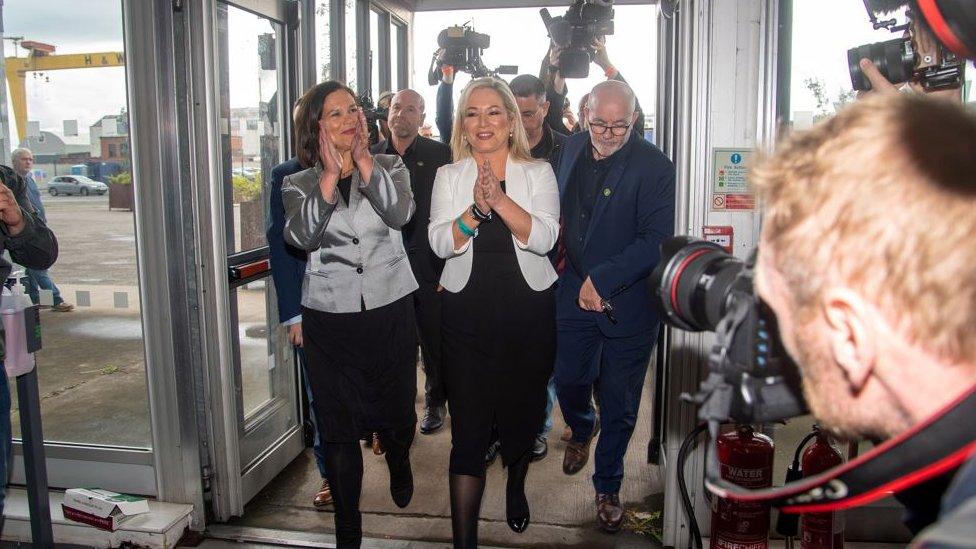King Charles: Michelle O'Neill attended Coronation 'to be respectful'
- Published
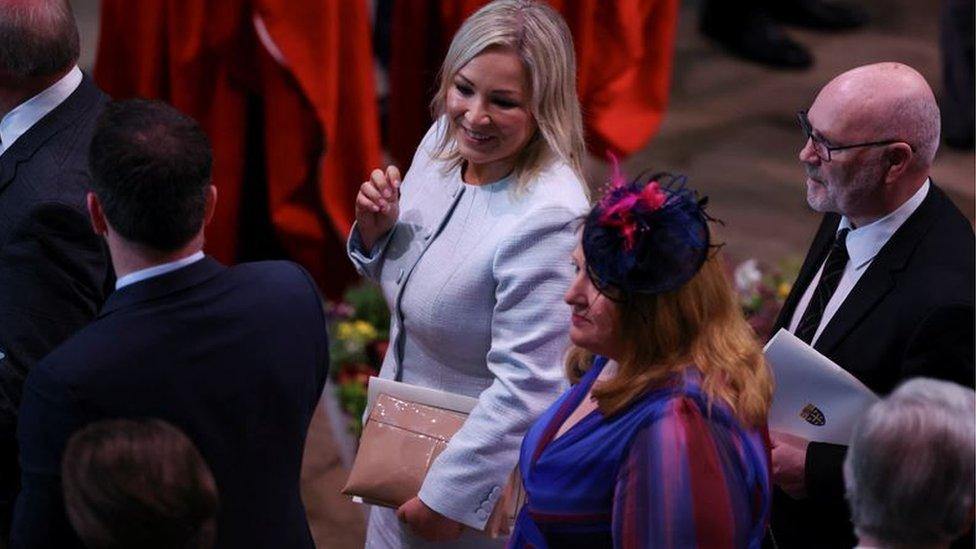
Michelle O'Neill pictured with Alex Maskey and Alliance leader Naomi Long as they departed from Westminster Abbey on Saturday
Sinn Féin's Michelle O'Neill says her attendance at the King's Coronation was important to show respect for others.
The leaders of all Northern Ireland's main political parties were among the invited guests at the ceremony at Westminster Abbey on Saturday.
Ms O'Neill attended the event with party colleague Alex Maskey in his role as speaker of the Northern Ireland Assembly.
Michael D Higgins was the first Irish head of state to attend a Coronation.
"It's certainly different territory for me but I think that the whole of the island is changing, the political landscape is changing," Ms O'Neill said afterwards.
"Whenever you're going through a period of change it's really, really important that we are respectful of each other and respectful of our equally legitimate political aspirations and how we feel about society.
"Being here was very important in terms of being respectful for those in society who look towards the monarchy and this is a very historic moment in time for them."
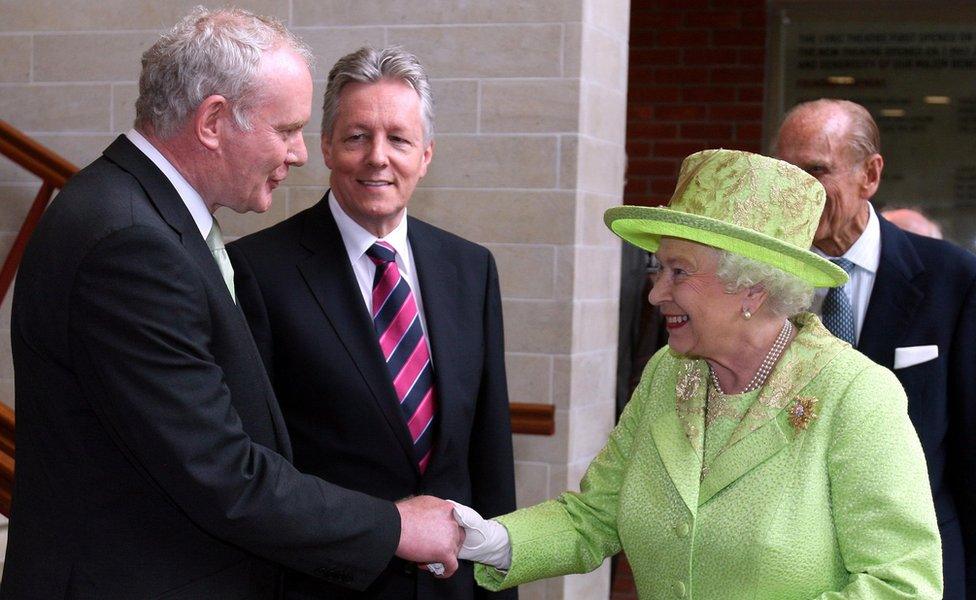
The four-second handshake between the former IRA leader Martin McGuinness and the then British monarch, Queen Elizabeth II, appeared to usher in a new era
The republican party has traditionally objected to the monarchy, particularly in relation to its role in Northern Ireland.
Sinn Féin MPs, for example, do not take their seats in Westminster partly because they are required to take an oath of allegiance to the head of the Royal Family.
However, the party's relationship to the monarchy changed dramatically in 2012 when Sinn Féin's Martin McGuinness famously shook the late Queen's hand.
Sinn Féin became the biggest party at the Northern Ireland Assembly after an election last May, meaning Ms O'Neill is entitled to be first minister.
But the Democratic Unionist Party (DUP)'s refusal to join an executive in protest over post-Brexit trading arrangements prevented her from doing so.


- Published6 May 2023
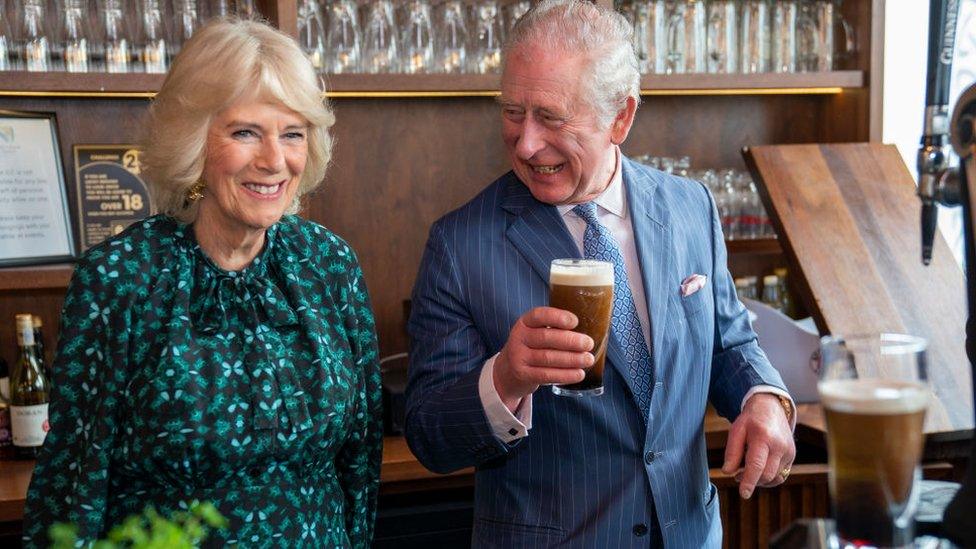
- Published7 May 2023
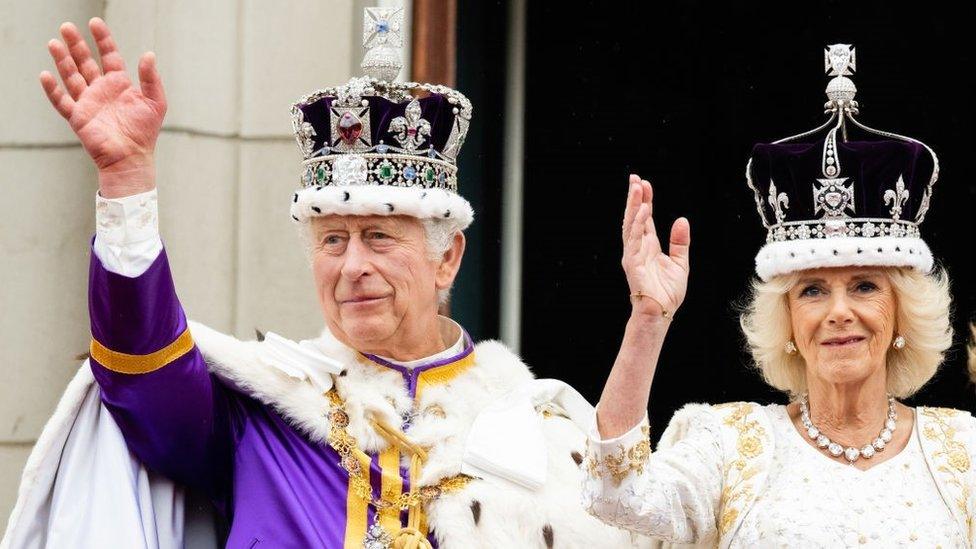
- Published8 May 2022
